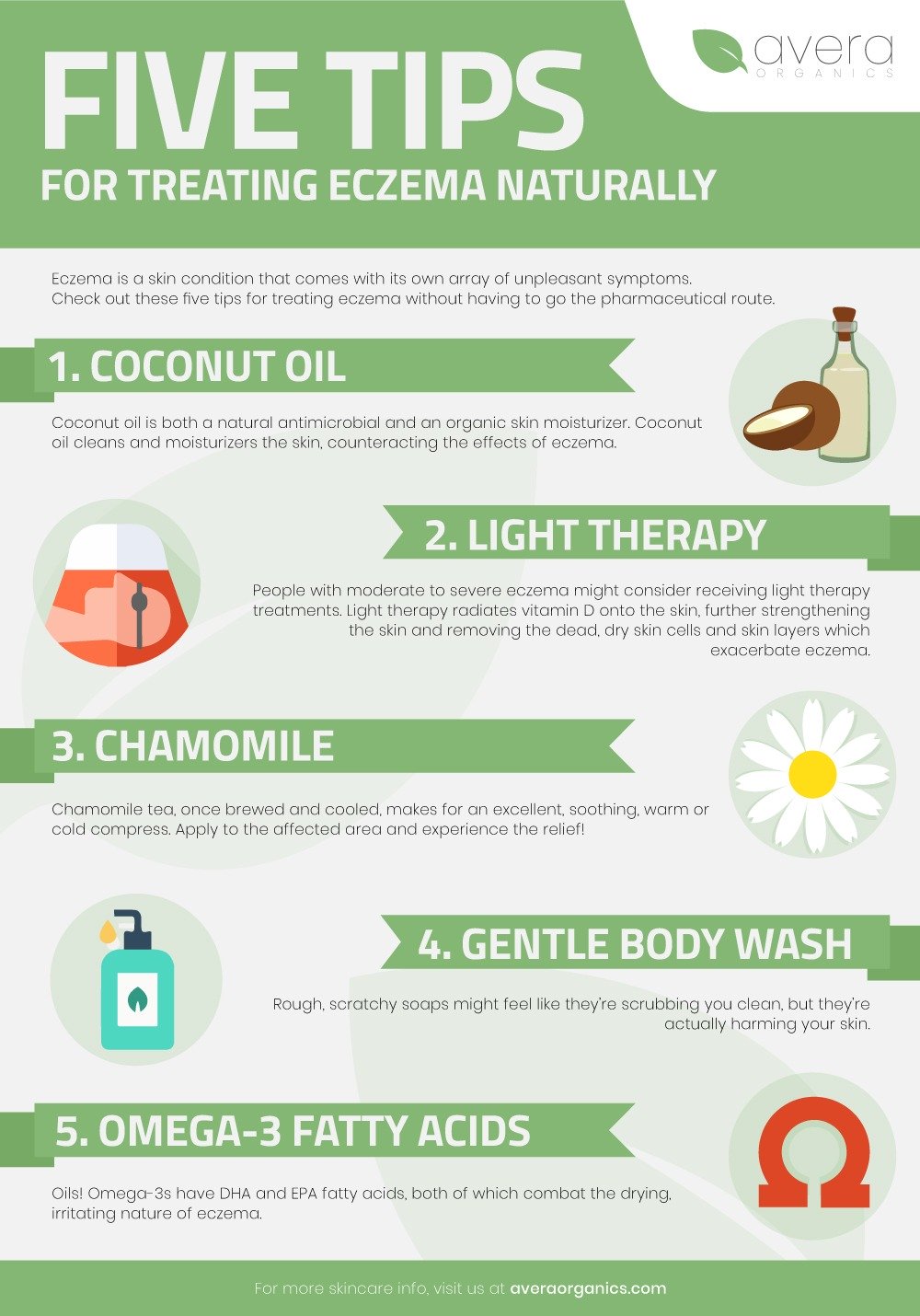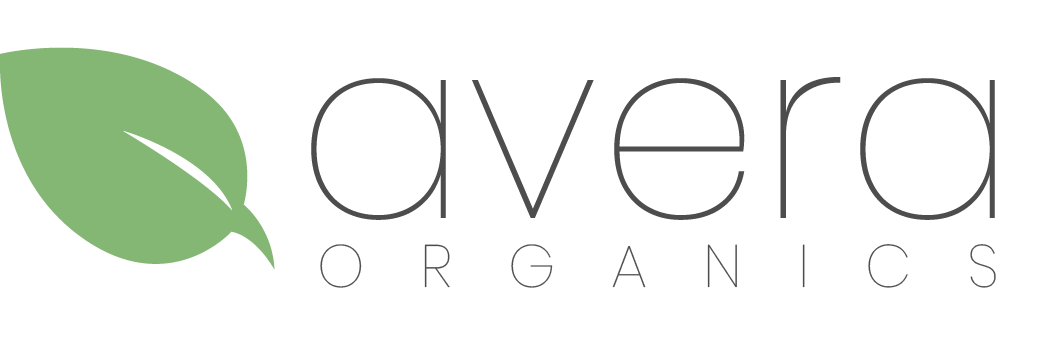
Eczema is not an uncommon skin condition. According to the National Eczema Association1, about 31.6 million people have this condition just in the U.S. alone.
As the medical field and our understanding of dermatological ailments increases, we learn about more things we can do to treat eczema, all without ever having to take a pill or pharmaceutical drug for it. Let’s take a look at what we should add to our day-to-day lives to reduce unwanted symptoms. And let’s also take a look at what we should subtract from our lives to combat eczema.
What Can We Do to Reduce Eczema Symptoms?
While eczema might be an incurable condition at this time, thankfully there is much that we can do to reduce symptoms. It’s merely a matter of first understanding what eczema is, and then learning how to counteract the role that eczema plays in the skin.
Simply defined, eczema is a biological condition in which the human body’s immune system is overactive. That leads to the body’s excessive production of skin cells. Think of it as the skin building new layers of skin, over and over each other, all without allowing dead skin cells and skin layers to be removed before new skin layers are built on top of them. That’s what leads to inflamed, dry, itchy, red, cracked, bumpy, and generally rough and irritated skin.
The National Eczema Association2 defines eczema as such:
“Eczema is the name for a group of conditions that cause the skin to become red, itchy, and inflamed. The word ‘eczema’ is derived from a Greek word meaning ‘to boil over.’ When an irritant or an allergen ‘switches on’ the immune system, skin cells don’t behave as they should, causing an eczema flare-up.”
— National Eczema Association
Not only is eczema an immune issue, but it is also a skin moisture issue. Eczema prevents the skin from retaining moisture. That causes dryness, and that in turn leads to the unpleasant symptoms associated with eczema. Because eczema is both an immune system issue and a skin moisture issue, we have to consider both internal and external factors when treating eczema.
Here are some simple, natural remedies for eczema:
- Take steps to reduce stress. Skin conditions like hives are commonly connected to stress, and eczema is no different. People with eczema should implement daily activities into their lives that reduce stress. These could be activities like taking Yoga classes, meditating, getting regular exercise, eating well, reading books, and taking lots of vitamins.
- Utilize natural antibacterials like coconut oil. Both the National Eczema Association and Healthline3 discuss coconut oil as a potential remedy for eczema symptoms. That’s because the antibacterial nature of coconut oil helps to reduce staph bacteria on the skin, and that in turn reduces eczema symptoms.
- Capitalize on camomile. Camomile4 is quite soothing for several skin irritants including eczema. Simply brew a mug of camomile tea, let it cool to a comfortable but warm temperature, then pour the tea onto a washcloth. Apply the washcloth to affected areas of the skin. Repeat if necessary.
- Apply cold, wet compresses to the skin. Sometimes all that’s needed to relieve an area of the skin affected by eczema is a cold compress. Heat exacerbates eczema. A cool, wet towel can provide quick relief, especially on a hot summer’s day.
- Keep the skin clean and moisturized. It is crucial to moisturize on a daily basis to reduce eczema symptoms. One should bathe daily and always moisturize the skin with a natural skin cream or organic skin lotion. Keeping clean, bacteria-free, moisturized skin should be a daily habit for eczema patients. Think of eczema as a skin ailment which robs the skin of moisture. Daily application of natural creams and lotions effectively moisturizes the skin, eliminating eczema symptoms in the process.
- Make use of light therapy. Light therapy simply uses UV rays to improve the health condition of the skin. When daily moisturizing is not enough to relieve eczema symptoms, light therapy might be the next treatment on the docket. Light treatment has shown to be particularly useful in patients who have severe eczema flare-ups. (To learn more, the National Center for Biotechnology Information5 has a great article on the benefits of light therapy).

Embed Code:
Treating Eczema – What to Avoid
When we think of treating eczema, we often immediately jump to the remedies or daily healthcare approaches we should add to our lifestyle. But there are also lifestyle habits and daily routines that one should avoid or even subtract from one’s current life. The truth is, we might need to remove things from our daily lives to treat eczema properly. These could simply be day-to-day habits, foods, skincare products, or common tendencies that one wouldn’t really think of, but which actually makes eczema worse.
Some of the things we should avoid are as follows:
- Avoid using harsh soaps and highly fragranced products. Some soaps are tough on the skin, roughing up the skin’s natural, protective barrier, drying it out, and irritating what is already very sensitive skin. Be sure to avoid harsh, gritty soaps, and instead use soaps intended for sensitive skin.
- Refrain from taking long, hot baths or showers. We all love a good hot shower, but for those of us with eczema, these are best avoided. The problem is, extremely hot water further irritates the skin, particularly hot, hard water. Eczema patients should content themselves with warm showers to keep their skin healthy and reduce irritation. A soft water filter might also be a good investment, particularly during the cold, dry months of the year.
- Avoid tobacco smoke. Tobacco smoke is a harmful carcinogenic. Not only is such smoke toxic to the lungs, eyes, and nose, but it irritates the skin too. People with eczema should avoid tobacco smoke, even second-hand smoke. Furthermore, eczema patients who smoke cigarettes should consider quitting. They might also consider switching to vaping, a smoking substitute that emits water vapor (not harmful to the skin).
- Avoid hot temperatures that lead to sweating. Sweat and heat combined can worsen eczema symptoms. When one is in a warm environment, the skin heats up along with the rest of the body. An increase in skin temperature can lead to further irritation of the skin, which in turn can lead to a worsening of eczema symptoms. If one desires to exercise or perform strenuous, sweat-inducing labor, one should attempt to do so in a cool, temperature-controlled space.
- Stay away from foods that produce allergic reactions. Food allergies can trigger eczema in some patients. That is particularly true with foods like eggs, milk, soybeans, peanuts, and wheat. But in general, if one knows of a food allergy, they should avoid that food, not only for the impact that food has on their digestive system but also for the effect that food has on their skin.
- Take care to avoid dust. Dust is chock-full of pollens and allergens. People with eczema should avoid dusty surfaces, especially on pillows and furnishings. One might consider using dust protectors and should take care to keep a clean home, living space, and workspace.
Up and Coming Treatments for Eczema
Trying everything under the sun and moon and still struggling with eczema conditions? Don’t lose hope. Even as we speak, there is new research on the horizon that brings us good news in the form of useful, near-future treatments for eczema.
According to an article published in Medical News Today6, there is research that suggests that a vanilla extract derivative called “vanillin” might be a revolutionary remedy for eczema. Researchers tested vanillin on psoriatic mice, finding soon after that the extract considerably improved skin condition in test subjects. Granted, mice are not the same as humans, and psoriasis is not the same as eczema (though the conditions are very similar). But these findings could lead to groundbreaking discoveries in natural treatments for eczema. Quoting the research:
“Vanillin significantly decreased both the amounts of IL-17A and IL-23 and the infiltration of immune cells in the skin tissues of IMQ-treated mice. In conclusion, our findings suggested that vanillin was an effective bioactive compound against psoriatic skin inflammation.”
— Medical News Today
The story on vanillin is a hopeful one. We still don’t know for sure if this vanilla extract derivative will have the same positive results for human eczema patients, but it gives us something to look forward to. There are always new ideas, discoveries, and new solutions to improving our health.
A Life of Clear, Itch-Free, Rash-Free Skin
We can see that treating eczema via natural, holistic means involves two, key approaches:
1). Adding certain supplements and lifestyle changes into our lives, and adhering to those changes on a daily basis.
And,
2). Taking certain habits out of our day-to-day lives.
Another article on Medical News Today7 further explored that concept of adding and subtracting habits, elements, foods, and routines in an effort to treat eczema. That article also gave valuable data on the differences between eczema and psoriasis.
Thankfully, there is much that we can do to curb, reduce, and even eliminate the symptoms of eczema. It’s just a matter of studying the materials and information that we have available and applying the gathered data into our day-to-day lives. We should all take comfort in knowing that there are natural remedies and lifestyle changes that we can all make to have happy, healthy, itch-free, and rash-free skin.
Sources:
1 https://nationaleczema.org/research/eczema-facts/
2 https://nationaleczema.org/eczema/
3 https://www.healthline.com/health/natural-remedies-to-reduce-eczema-symptoms#coconut-oil
4 https://www.mindbodygreen.com/0-12413/5-natural-treatments-for-common-skin-conditions.html
5 https://www.ncbi.nlm.nih.gov/books/NBK424892/
6 https://www.medicalnewstoday.com/articles/320238.php#3
7 https://www.medicalnewstoday.com/articles/315749.php#treatments_eczema
